The Capillary Wave

# 6. The Two Main Jurisdictions [Part 1]
A Capillary Wave Article Via: C M EDWARDS November 2023
A Brief Look At The Two Main Jurisdictions Of Law And Governance
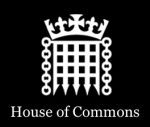
Introduction
If you have read these articles in ascending numerical order you should by now be getting a very good understanding of what is real and what is fiction, who is in charge, and where all Law comes from. The King at Great Britain, and in the UNITED KINGDOM is told “ We present You with this Book, the most valuable thing this World affords”. If this book is The Bible, then its teachings have a huge significance in the way a country is governed.
Jurisdiction simply means an area of control for the administration of justice. In other words, who controls what, in which area. In some large countries like the USA, different states have different jurisdictional boundaries. We have all probably seen the old cops and robbers movies, whereby the bad guys head for the nearest state border to evade the justice of the jurisdiction that they committed the crime in. In the UK there is a more common and romantic jurisdictional difference, whereby young lovers from England can “run away” to Gretna Green in Scotland to get married, where the legal age for marriage was lower than in Englands jurisdiction. That tradition is still alive today, albeit the marriage policies have changed.
From the examples above we can clearly see that one landmass can have multiple legal jurisdictions. There is no physical boundaries often to mark the change in legal jurisdiction, because a legal jurisdiction is a fiction of law. It does not exist in reality, only in your mind. The former YUGOSLAVIA is a good example of a legal fiction, a legal jurisdiction that no longer exists in law, and barely exists in peoples minds any longer.
In this article we will take a look at the two main jurisdictions available on any one landmass. As we have already discovered each landmass has the lawful jurisdiction of the people, and the legal jurisdiction of the citizens of the country (persons).
We live in a duality. In our existence there are opposites everywhere; light and dark, night and day, hot and cold, wet and dry, light and heavy etc. It is the same with words, many words have two different meanings: suffer can mean to allow something to happen to you, and also to have something happen to you, against your will. It is no different with people and persons, and the two main jurisdictions of legal and lawful. The two main jurisdictions: Legal Vs Lawful, could also be seen as: man Vs God, or even: Legality Vs Morality. All of those terms are in opposition to each other; see the definition of “secular”. Each effectively having different law makers, different Gods. Which is why The Bible warns against choosing another god, and not accepting man’s person and titles. The legal world is all about: fictions, persons, titles and acts.
Definitions
As with all of these things, I like to start with the word definitions to find out what we are dealing with:
world (n.)
Old English woruld, worold “human existence, the affairs of life,” also “a long period of time,” also “the human race, mankind, humanity,” a word peculiar to Germanic languages (cognates: Old Saxon werold, Old Frisian warld, Dutch wereld, Old Norse verold, Old High German weralt, German Welt), with a literal sense of “age of man,” from Proto-Germanic *weraldi-, a compound of *wer “man” (Old English wer, still in werewolf; see virile) + *ald “age” (from PIE root *al- (2) “to grow, nourish”).
Originally “life on earth, this world (as opposed to the afterlife),”
That definition makes sense, its not the Earth, the soil, (it is a different word for a start) world means human affairs.
affair (n.)
c. 1300, afere, “what one has to do, ordinary business,” from Anglo-French afere, Old French afaire “business, event; rank, estate” (12c., Modern French affaire), from the infinitive phrase à faire “to do,” from Latin ad “to” (see ad-) + facere “to do, make” (from PIE root *dhe- “to set, put”).
rank (n.)
early 14c., “row, line, or series;” c. 1400, a row of an army, from Old French renc, ranc “row, line” (Modern French rang), from Frankish *hring or some other Germanic source (compare Old High German hring “circle, ring”), from Proto-Germanic *hringaz “circle, ring, something curved” (from nasalized form of PIE root *sker- (2) “to turn, bend”).
Meaning “a social division, class of persons” is from early 15c. Meaning “high status or position in society” is from early 15c. Meaning “a relative position” is from c. 1600
estate (n.)
early 13c., “rank, standing, condition,” from Anglo-French astat, Old French estat “state, position, condition, health, status, legal estate” (13c., Modern French état), from Latin status “state or condition, position, place; social position of the aristocracy,” from PIE root *sta- “to stand, make or be firm.”
For the unetymological e-, see e-. Sense of “property” is late 14c., from that of “worldly prosperity;” specific application to “landed property” (usually of large extent) is first recorded in American English 1620s. A native word for this was Middle English ethel (Old English æðel) “ancestral land or estate, patrimony.” Meaning “collective assets of a dead person or debtor” is from 1830. The three estates (in Sweden and Aragon, four) conceived as orders in the body politic date from late 14c. In France, they are the clergy, nobles, and townsmen; in England, originally the clergy, barons, and commons, later Lords Spiritual, Lords Temporal, and commons.
policy (n.1)
[“way of management”], late 14c., policie, “study or practice of government; good government;” from Old French policie (14c.) “political organization, civil administration,” from Late Latin politia “the state, civil administration,” from Greek politeia “state, administration, government, citizenship,” from politēs “citizen,” from polis “city, state” (see polis). From early 15c. as “an organized state, organized or established system of government or administration of a state,” but this sense has gone with polity. Also from early 15c. as “object or course of conduct, or the principles to be observed in conduct,” and thus “prudence or wisdom in action” generally, but especially “the system of measures or the line of conduct which a ruler, minister, government, or party adopts as best for the interests of the country in domestic or foreign affairs.”
civil (adj.)
late 14c., “relating to civil law or life; pertaining to the internal affairs of a state,” from Old French civil “civil, relating to civil law” (13c.) and directly from Latin civilis “relating to a society, pertaining to public life, relating to the civic order, befitting a citizen,” hence by extension “popular, affable, courteous;” alternative adjectival derivative of civis “townsman” (see city).
Meaning “not barbarous, civilized” is from 1550s. Specifically “relating to the commonwealth as secularly organized” (as opposed to military or ecclesiastical) by 1610s. Meaning “relating to the citizen in his relation to the commonwealth or to fellow citizens” also is from 1610s.
secular (adj.)
c. 1300, seculer, in reference to clergy, “living in the world, not belonging to a religious order,” also generally, “belonging to the state” (as opposed to the Church), from Old French seculer, seculare (Modern French séculier) and directly from Late Latin saecularis “worldly, secular, pertaining to a generation or age,” in classical Latin “of or belonging to an age, occurring once in an age,” from saeculum “age, span of time, lifetime, generation, breed.”This is from Proto-Italic *sai-tlo-, which, according to Watkins, is PIE instrumental element *-tlo- + *sai- “to bind, tie” (see sinew), extended metaphorically to successive human generations as links in the chain of life. De Vaan also connects it with “bind” words and lists as a cognate Welsh hoedl “lifespan, age.” An older theory connected it to words for “seed,” from PIE root *se- “to sow” (see sow (v.), and compare Gothic mana-seþs “mankind, world,” literally “seed of men”). The ancient Roman ludi saeculares was a three-day, day-and-night celebration coming once in an “age” (120 years). Ecclesiastical writers in Latin used it as those in Greek did aiōn “of this world” (see cosmos). It is the source of French siècle “century.” The meaning “of or belonging to an age or a long period,” especially occurring once in a century, was in English from 1590s. From mid-14c. in the general sense of “of or belonging to the world, concerned in earthly more than in spiritual, life;” also of literature, music, etc., “not overtly religious.” In English, in reference to humanism and the exclusion of belief in God from matters of ethics and morality, from 1850s. Related: Secularly.
harm (v.)
Old English hearmian “to hurt, injure,” from the noun (see harm (n.)). It has ousted Old English skeþþan (see scathe (v.)) in all but a few senses. Related: Harmed; harming.
injury (n.)
late 14c., “harm, damage, loss; a specific injury,” from Anglo-French injurie “wrongful action” (Old French injure, 13c.), from Latin iniuria “wrong, an injustice, insult, unlawful violence, assault, damage, harm,” noun use of fem. of iniurius “wrongful, unjust, unlawful,” from in- “not, opposite of” (see in- (1)) + ius (genitive iuris) “right, law” (see jurist).
A Summary of The Two Main Jurisdictions:
Legal – Breach Of Polity Policies and
Lawful – The Bible
On Earth there are the natural things, to do with the LAW – Land, Air and Water, and there are the things made by man. There are also the worldly things to consider which are: the activities of man, the affairs of humans/persons, and then there are the other intangible creations of communication: language (words and numbers), and the law, which are to do with the mind; from this comes writing, and the written word.
From the word: world and its synonymous words, we can build a great picture of what those human affairs looks like. They are the very topics which we have evidenced in other articles here, the workings of a country. It would seem that human affairs include: persons, the state, business, a rank held by a person in society, worldly prosperity, legal estates, a person’s; status, social division.
All of the definitions above for worldly affairs, relate directly to a country, and persons, which would make perfect sense, as all of these things are under the jurisdiction of a country; and we already know what a country is: a legal fiction. The world after all is made up of many countries (legal fictions). Naturally (in nature) the Earth is made up of many different landmass’. Are you beginning to put this together in your mind now? – after all, that is where these legal fictions exist – in your mind. Here are some Legal Maxims on fictions of law:
- A fiction is a rule of law that assumes something which is or may be false as true.
- Where truth is, fiction of law does not exist.
- There is no fiction without law.
- Fictions arise from the law, and not law from fictions
- Fiction is against the truth, but it is to have truth.
- In a fiction of law, equity always subsists.
- A fiction of law injures no one.
- Fiction of law is wrongful if it works loss or injury to any one.
We should now have a clear understanding that we have people on Earth, and persons are of the worldly affairs. There is on this Earth and in the world for people and citizens two main jurisdictions. That which is lawful; the real and living; and that which is legal; the worldly, the imaginary, the intangible, the persons, corporations, and the dead. The word: corpse is linked to the word corp -oration, for good reason, and now it is clear why.
- Index Jump To: World
I have termed this chapter; the jurisdictions of policy and harm, because that is exactly what there is available. The UK as a body corporate and has various policies which its citizens must obey. People are under a different master, and have a different set of rules, cause no harm. The fundamental principle that all Law is based upon is: “love thy neighbour”. If it needs to be explained to you how to behave morally, you will need to have the “government” of a polity to tell you how to behave and look after you. This polity can also issue licences to persons which will allow them to do the same activities that can be done freely without licence in the lawful jurisdiction. Perhaps now the definitions of the word: licentious makes much more sense to you, given that human affairs are very clearly in opposition to the teachings in The KJV 1611 Bible. The word definitions above match, and align with what I am explaining, because it is correct:
- Legal Vs Lawful. Legality Vs Morality. Dead Vs Living, man Vs God.
Civil Law
If you are a citizen of a country you are under Roman Law. You may understand this law as: Civil Law. Civil Law is Roman Law. Civil Law are the rules all citizens of a country obey. Civil Law is legal and is the system of rules that the legal system of a polity uses. It is not separate from the legal jurisdiction but I wanted to address Civil Law specifically, as it should be something of interest.
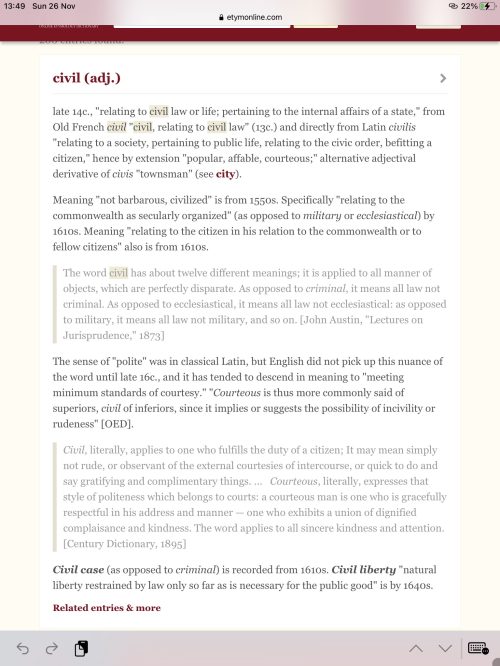
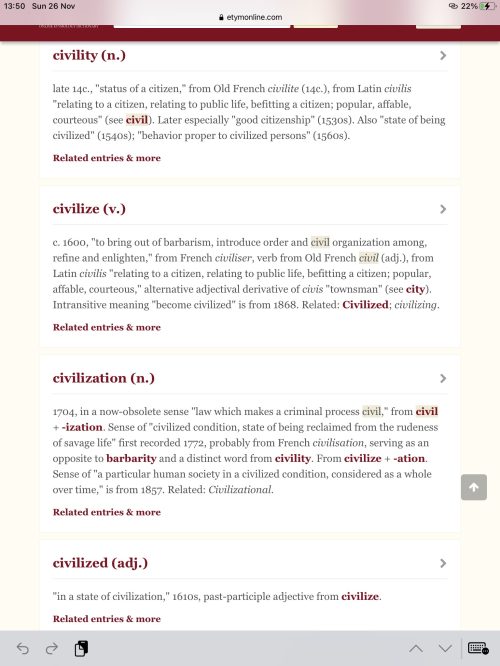
To repeat the definitions from the above photographs, Civil Law concerns: Worldly Affairs, Human Affairs, it is to do with your title, rank in governance and, civilian state affairs. The very definition of civil is: “secular” which itself means: “living in the world”, which completes the circle of definitions. A human is a civilised man; which I find very interesting.
We can clearly see that Civil Law is in relation to, persons, polities and country’s. We might also now understand why the Romans took such a dislike to those who were interested in The Holy Scripture. We can also clearly see why the teachings in The KJV 1611 Bible would warn people against becoming: citizens of the state, of a country, some of which can be seen in the KJV 1611 words, Online Etymology definitions, and Strong’s Concordance definitions.
Below on the left is the Ten Commandments from the KJV 1611 Bible at: Exodus 20:1, this is just one example of where The Bible warns the reader about: countries, gods, house of servitude, and the like. We will examine and explore some of these key words which are highlighted below:
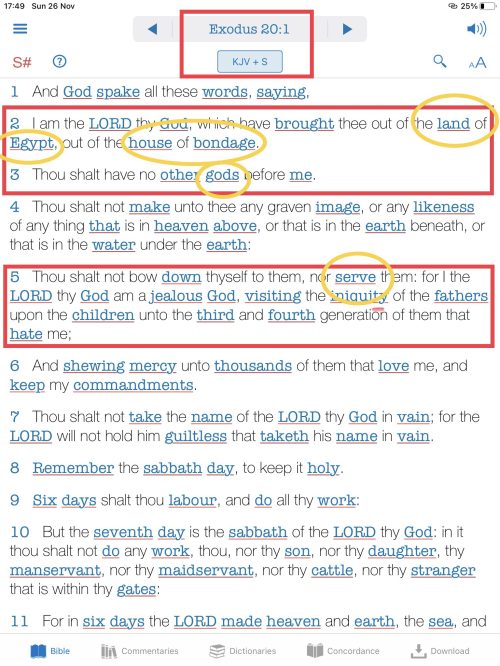
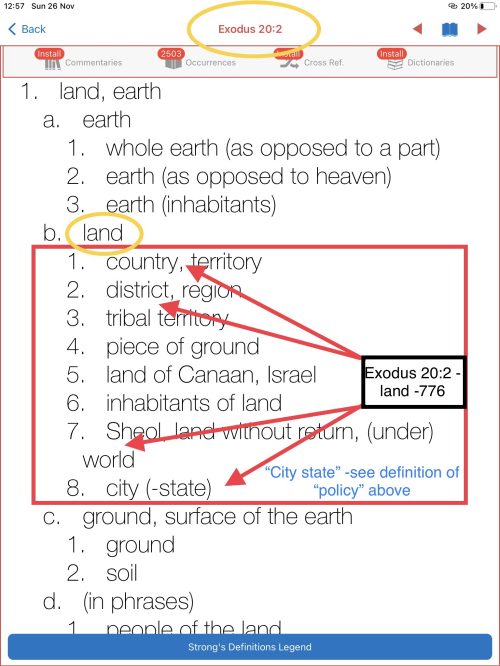
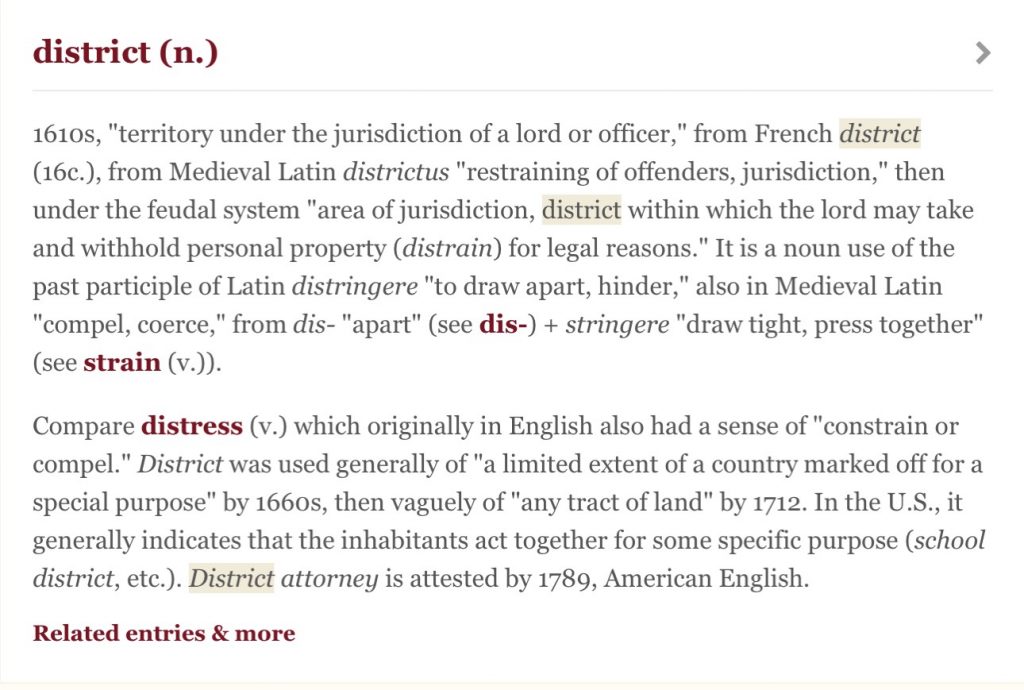
- Index Jump To: District
From the photograph below top left – Egyptians = “double straits” meaning enemy, one who presses in, trouble, as also confirmed by Strong’s Concordance below top right:
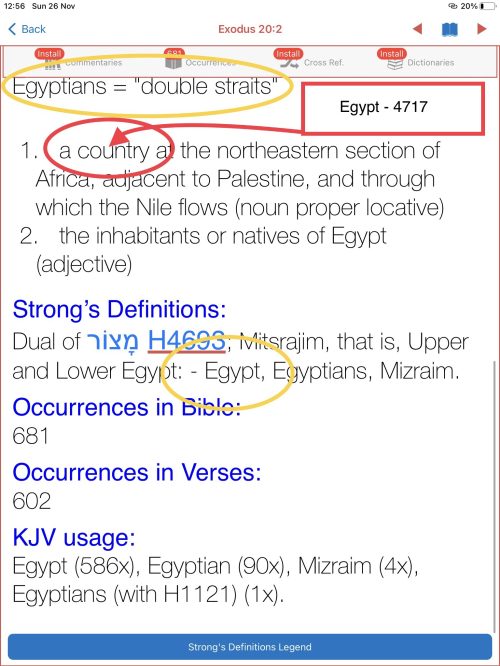
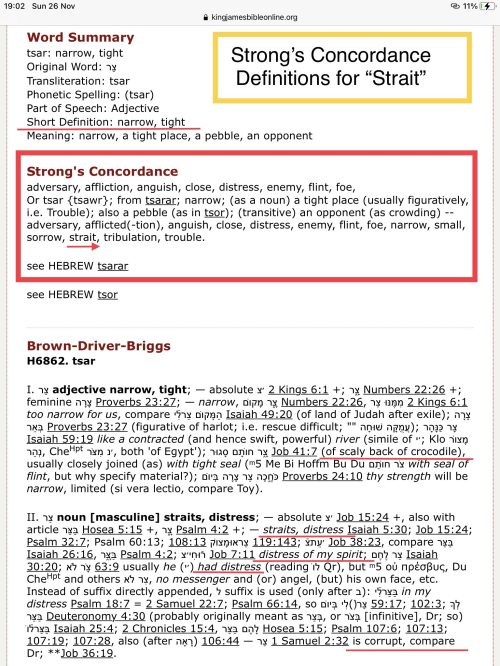
It is evident that the land of the Egyptians was a (under) world of the legal, civil, district, and country. The Bible warns about that system, it is an enemy of God’s people, enslaving them. Those of you who have read the previous articles here will recognise that the word “House” from the above biblical chapter shares a lot of similar definitions to country and polity, and for good reason. In the UK we have the “House of Commons”, and the USA has the ‘House of Representatives”. A patriot is a person for whom the country is the Father. The USA has its “Founding Fathers”. The word “patriot” derives from “patrons”. Similar words are “padre” and “papa”, all denoting a “Father”. Another reason it is against the first commandment:
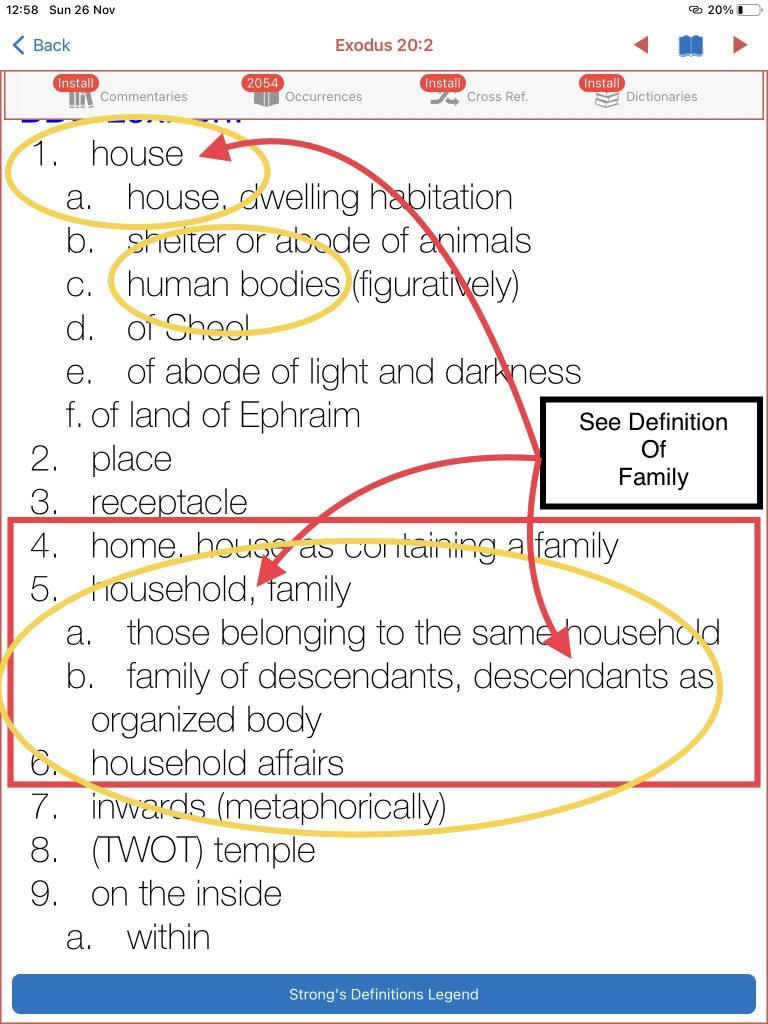
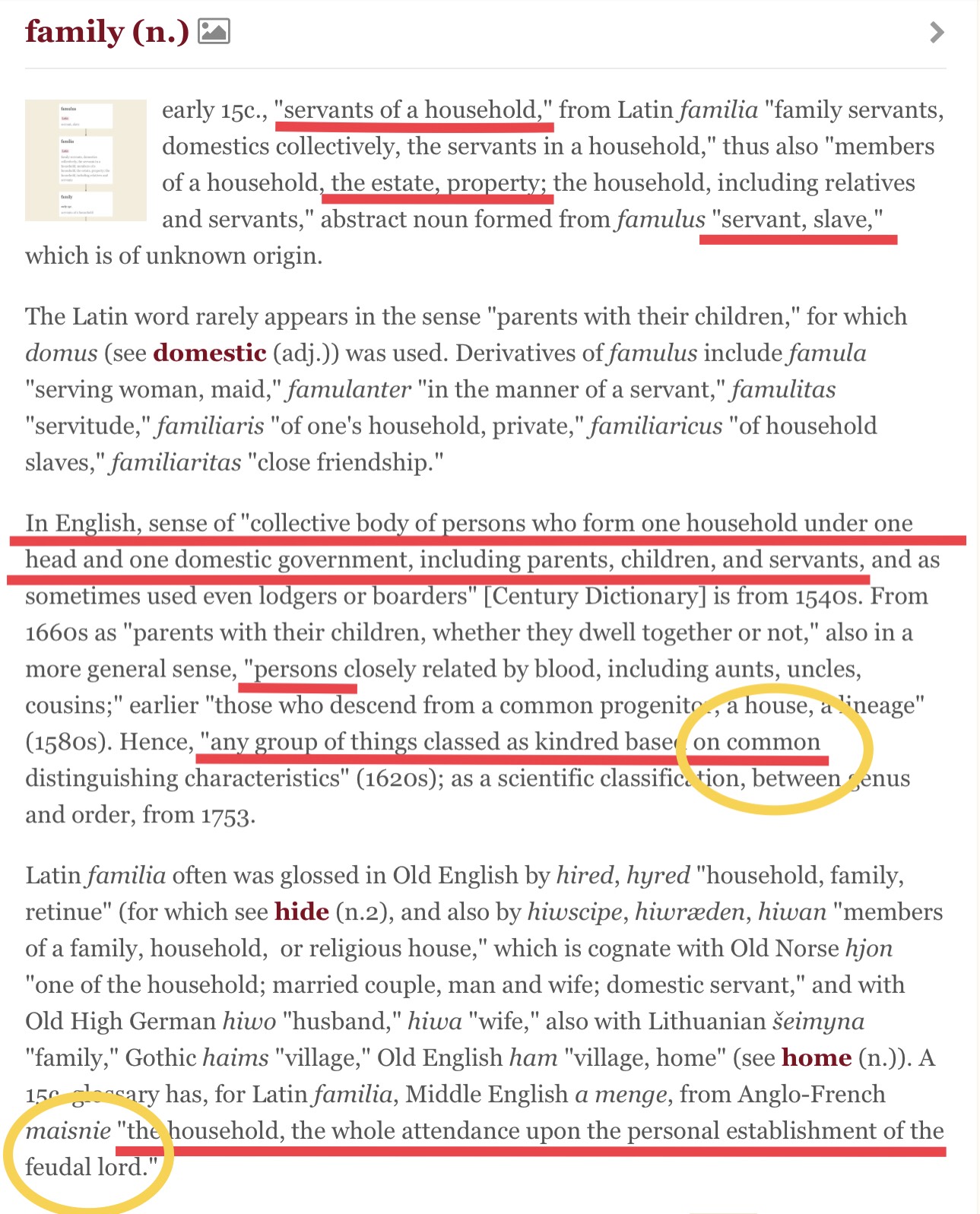
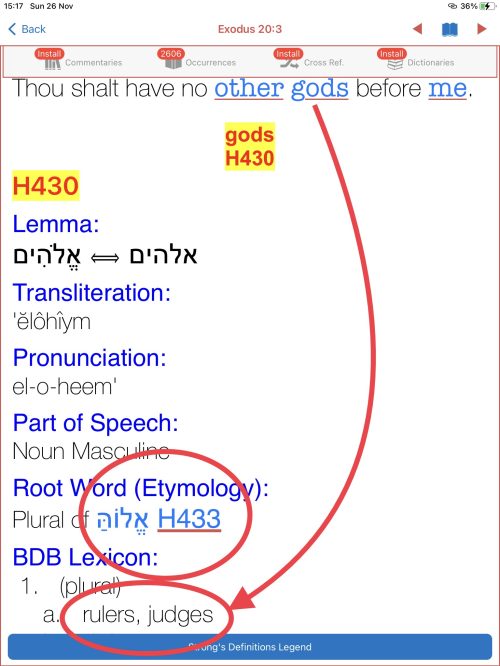
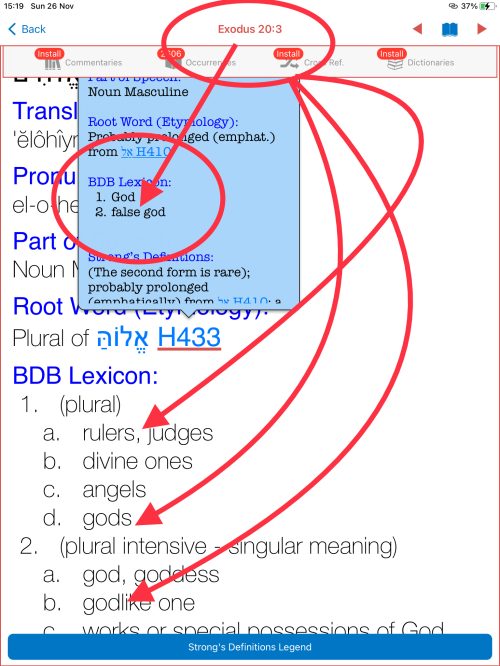
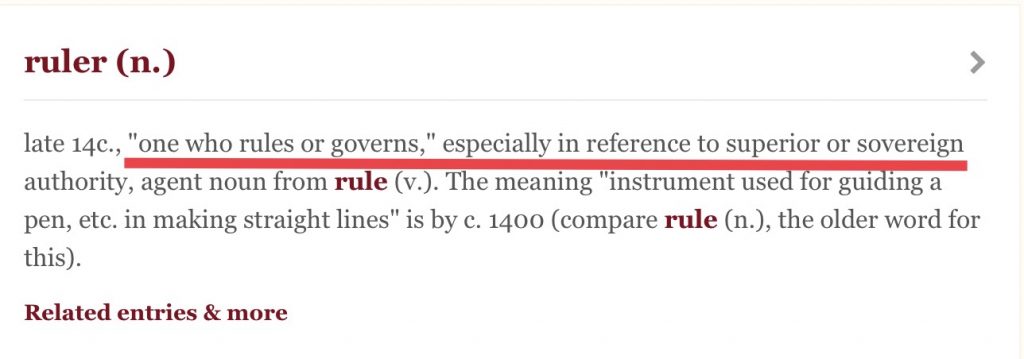
A ruler needs subjects.
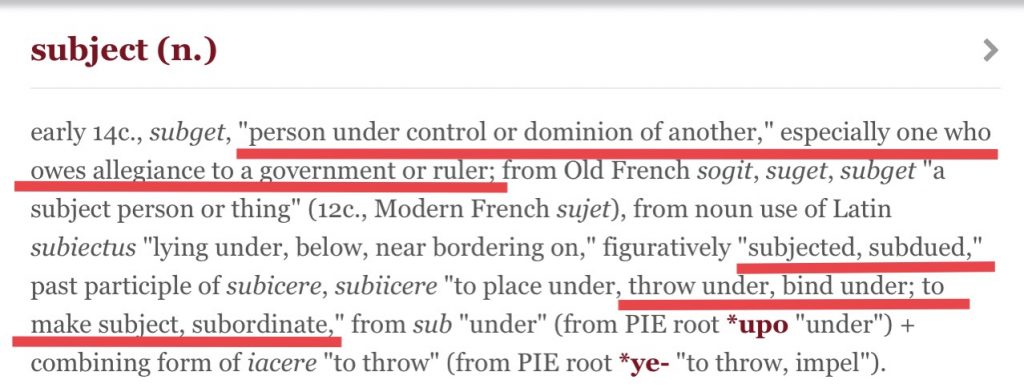
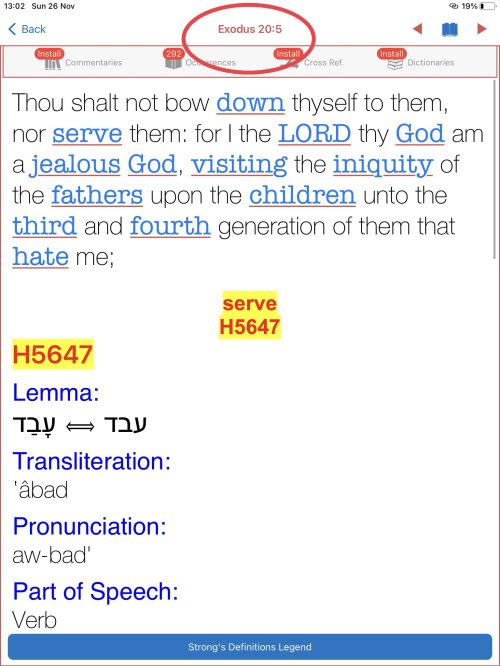
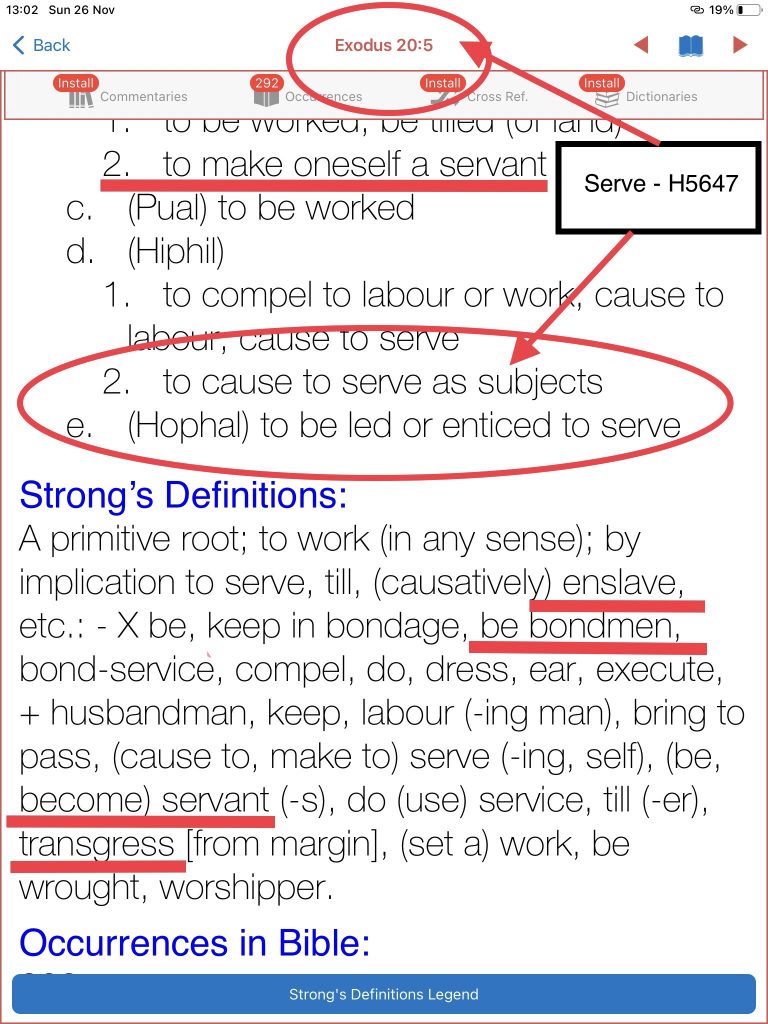
We can see from the first commandment (Exodus 20:3 KJV 1611) that you should not be the subject of a King in a polity, which is the legal jurisdiction because it leads to a transgression, a crossing of the boundaries.
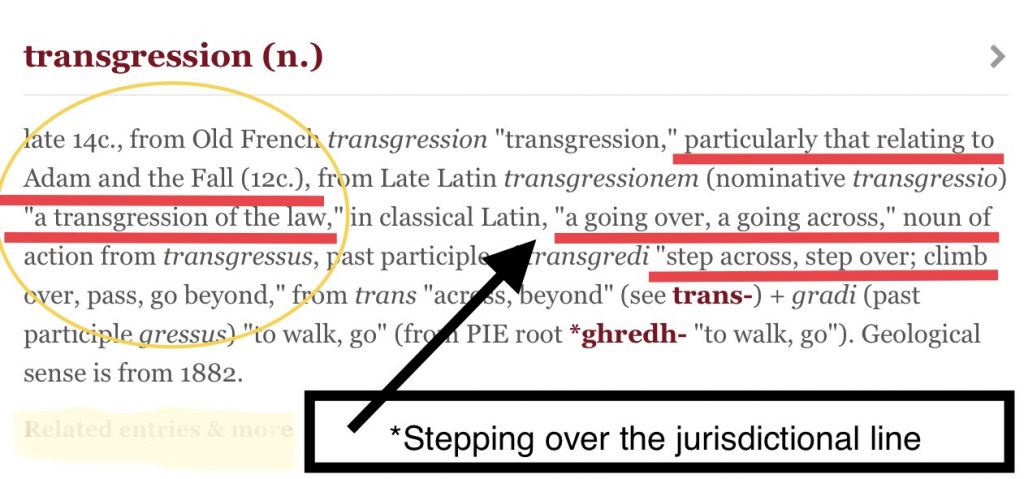
These systems of law and governance have been with us throughout the ages. Transgressing the jurisdictional line and the fall of man, brings us nicely back on to jurisdictions, and the legal and lawful divide. As you can see law is deeply rooted in the biblical teachings, and those biblical teachings shape our countries, and the world today.
In the next article I will go in to specific details on how the police operate in the two jurisdictions, as the roles they play in governance cover both jurisdictions. The police officer (like the previous example of the King), has two roles; a Constable, and a Police Officer. It is the same person, holding two different offices, covering both jurisdictions of harm and policy, even though in most cases he / she has no idea whatsoever.
Let us see how the world (human affairs), relates to the two main jurisdictions on Earth: [When I work out how to draw a diagram on a computer quicker than I can by hand, is when you will get a fancy computer graphic. Until then]
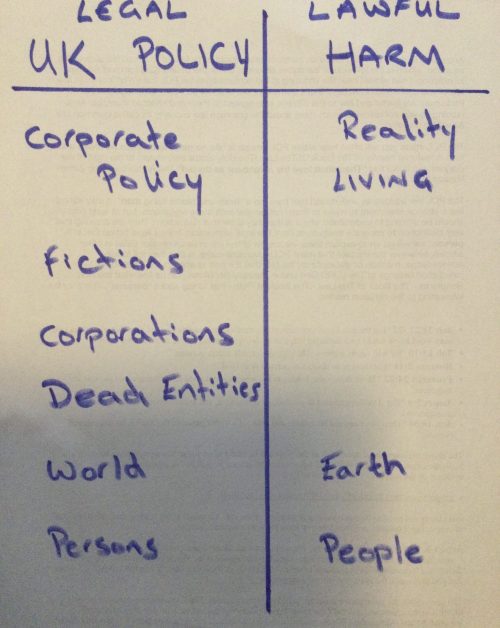
The Lawful Jurisdiction
To the right hand side of the diagram is the lawful jurisdiction. Here, there are no policies from a polity to follow. You might also notice how the words politics, polity, police and policy are all very similar; and for good reason, they all relate to the running of a polity. I have heard it mentioned before that LAW is an acronym for Land, Air and Water, which may just be the constitution for the lawful jurisdiction. The bounds of that jurisdiction are real, and reality; the land, air, and water, – just a thought. Either way, what is lawful is what is real, tangible, and not just a process of the mind. The Lawful jurisdiction falls under the teachings of The Bible.
Hierarchically the Lawful jurisdiction is superior to the legal one. The legal jurisdiction gets its direction from the lawful jurisdiction. The legal jurisdiction is a derivative of the lawful one. It exists because of the lawful jurisdiction, for those that have chosen another path. If something is not lawful, it can not be legal, or at least when the two clash, as happened for example during WWII, when the killing of jews was legalised – it was still immoral and unlawful despite the fact it was legal. This is what happens when man tries to play God, and gets involved in bending morality. The above are examples from various times in history when man tried to legalise what was unlawful – and it does not work. See Legality Vs Morality.
For the Lawful jurisdiction think Land, Air, Water and the Ten Commandments. Lawful is the realm of people and God, and legal is the imaginary realm of persons and corporations, all fictions of law.. God’s laws do not change. Persons laws change all of the time.
The activities on the left side are legal, and on the right they are lawful. Anything which requires a licence to be done on the left, can be done freely on the right without one.
Source: Blacks Law First Edition
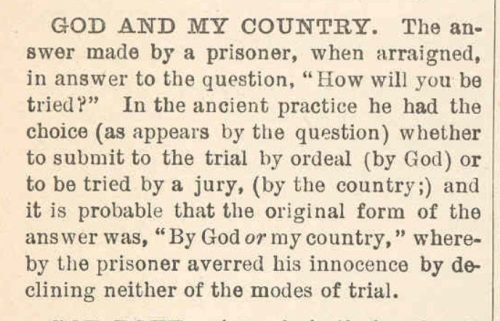
The Legal Jurisdiction
This is the inferior jurisdiction. Almost all of us start out over here, and stay here in this jurisdiction as a citizen of a country. I can say with some confidence that all atheists will be in this jurisdiction. I can say with some confidence that anyone who has never read or understands a KJV 1611 Bible, will be in this jurisdiction. I will also state that any polity with a Christian foundation will mean that any religion in that polity which is not Christian, will also have all of its members in the legal jurisdiction of the citizenry too. In other words all Sikhs, Muslims Jehovah’s Witness’ Catholics etc will be under a KJV 1611 doctrine if they are a UK citizen. Lastly, I can say that many deceived Christians will also be firmly in this legal camp, in opposition to God. A useful article for a Christian to read here on this point of deception will be my article entitled: Christians Have You Been Deceived?
- Just why will all of these persons from these various groups be lumped in as citizens in the legal jurisdiction? – What you believe to be the state of play, is irrelevant. You are being governed on what is the state of play, and what is the state of play, what is happening, and what is in affect on Earth and the World is precisely what The Bible [KJV. 1611] says. Which presumably is why The Archbishop of Canterbury gives The Bible to the Monarch and says, “the greatest gift this world affords”:
As stated in various articles here the legal jurisdiction is the jurisdiction of polities, of licentious freedom, of legal fictions, of corp-orations, of titles, of persons: of the imaginary. Of your mind.
The UK is a body corporate (legal fiction) as is your local council as evidenced here in Section 2. (3) of the Local Government Act 1972.
Source:
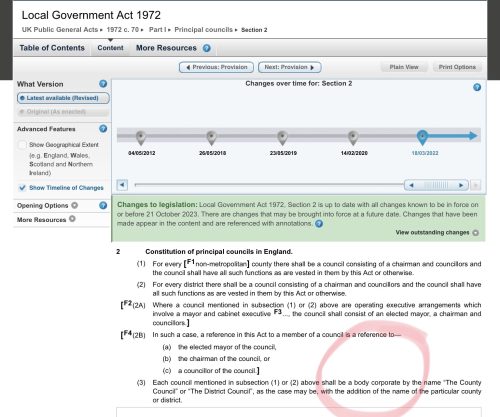
Here is a business directory where you can find some of the types of corporations which might be governing your life:
Some photographs of some of the businesses listed at Dunn & Bradstreet:




The Jurisdiction Which Can Cause Confusion For The Layperson – Common Law
The English common law system causes a lot of confusion for the layperson trying to understand law and governance, which is why I wrote the article: The Common Common Law Trap For Commoners
Common law confuses many in my opinion (and from some experience), because it has “law” in its title, and it is not technically used, or controlled under the Acts of Parliament, although I will show you an Act which covers the common law jurisdiction shortly. Acts of Parliament are the usual stock in trade for Polities controlling their citizen’s, but common law is not concerned with laws being enacted at Parliament per se. In a common law jurisdiction, which the USA, UK, and other commonwealth countries are, citizens can do whatever they please, as long as the activity they wish to do causes no harm, injury, or loss to another, and importantly; as long as the activity is not specifically legislated against.
A good example which might show the common law confusion for a layperson is, when wanting to “build a house” for your family. To build a house for your family is a basic “human right”, a necessity for any species. No species on Earth has to ask its fellow members if it is ok to build a shelter for its family. Also, because of these reasons “building a house” is not specifically legislated against, there is no law that says you can not build a shelter / house for your family. So, you might assume you can do so, and many citizens do make that assumption, in error. “Building a house”, generally speaking causes no other no harm so it passes the common law sniff test; yet technically a citizen is restricted from doing so, because citizens have to ask permission from a local authority to see if he / she is permitted to make further developments on the Land. If a citizen builds a house under common law, his rulers will pay him a visit.
In the link below, Professor Jordan Peterson succinctly explains the system of English common law, as good as I have heard anyone else explain it:
Common law is firmly under the legal administration and jurisdiction of the UNITED KINGDOM (UK), deals with Legal Acts, and case law regarding a citizen’s rights. Common law is a legal doctrine in that, it is; created, permitted and administered by the UK administration under the jurisdiction of Parliament. Common law is concerned with harm, injury and loss for people and persons of the state, and landmass
The Lawful jurisdiction under: The Bible, is a jurisdiction free of policies from polities (country’s). Its main law is Matthew 22:37-38, KJV 1611 .All law is based upon this principle, and for those that fail to honour this Law, they will ultimately transgress, and default to: legal persons. It makes sense that the legal system would have its equivalent, under the jurisdiction of Parliament to deal with citizens whose legal rights rub up against each other. Common law generally speaking is the case law which Judges have decided upon in such cases. Common law is not specific parliamentary legislation (Acts) enacted at Parliament, it is the doctrine that allows anything to be done by UK citizens as long as:
- The activity is not legislated against.
- The activity causes no harm, injury or loss to another.
An Act of Parliament that is rooted in the legal jurisdiction of a Polity, and its citizens; and the people of the Landmass is the: Offences Against The Person Act 1861. Carefully and diligently, look at the wording in this Act. It highlights everything I have evidenced here about People Vs Persons and the Legal Vs Lawful jurisdictional differences. Remember, a Monarch wears two hats, a judge swears two oaths, and a Police officer is also a Constable! Now you know precisely why.
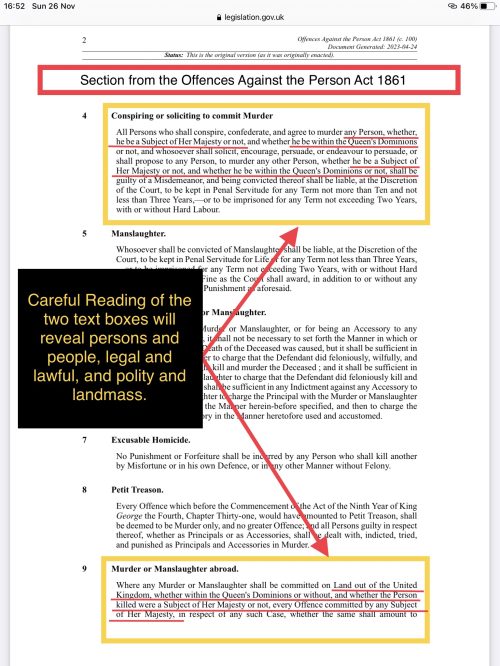
A Police Constable has the jurisdiction of the common law, and that office is created and supervised by UK and Parliament. A Constable is defined as a justice of the peace (peace keeper). His / her role is to keep the peace, and not to keep the policy. If a Constable sees you commit an assault (harm) on someone, he can grab and arrest you on the spot. He/she will not need to find out the citizens details first, because the crime was one of harm, and not a policy crime. If you break a policy, a Polic[e]y Enforcement Officer will first require the citizens details, this is in order for the citizen to confirm to the policy enforcer that he/she is indeed a UK citizen, and therefore has the jurisdiction to act. The office of a Police Officer is that of a policy enforcer of the UK, enforcing UK corporate policies on its employees / citizens.
Although a Constable is under UK administration, the Constable should only concern him / herself with the jurisdiction of harm, injury, and loss. So if you are one of the people, and therefore not under a polity, and some person is threatening you, it would be advisable to call a Constable to aid you, because he / she is sworn to protect the people and not persons. I will explain much more on this in my next article: What Are The Police
If you feel that others would benefit from reading this article, please consider sharing it. If you would like to find out more about law and governance then you can start by reading my articles in ascending numerical order which will garner the best results for you.
More articles on Law and Governance can be read from the menu below.
If you feel like buying me a coffee, or making a donation, that would be greatly appreciated.
In good faith
CME